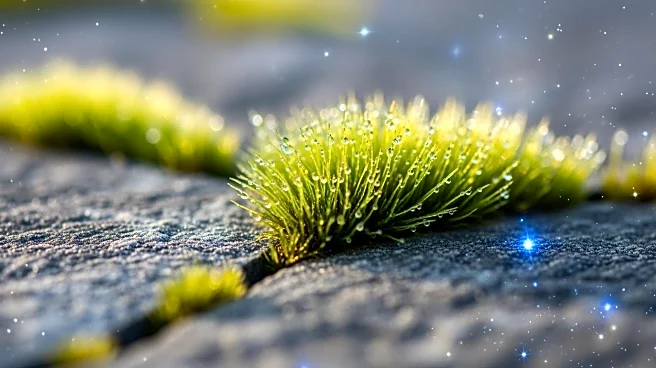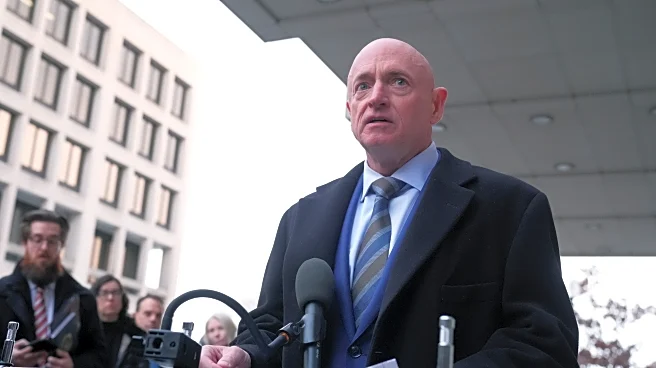What's Happening?
Astronauts attached 20,000 moss spores to the exterior of the International Space Station for 283 days, exposing them to the rigors of space. Upon returning to Earth, scientists successfully germinated
the spores, demonstrating their resilience to extreme conditions. The experiment tested the ability of moss, known for thriving in harsh environments on Earth, to survive in space. The spores showed a high germination rate despite exposure to vacuum, extreme temperatures, microgravity, and radiation, suggesting that life forms may possess intrinsic mechanisms to endure space-like conditions.
Why It's Important?
The successful germination of moss spores after prolonged exposure to space conditions provides valuable insights into the resilience of life and its potential to adapt to extraterrestrial environments. This research supports the idea that life, once emerged, can be robust and persistent, offering implications for the search for life beyond Earth. The findings may inform future efforts to develop sustainable agricultural systems in space, supporting long-term human missions and exploration. Understanding how terrestrial life can survive space conditions is crucial for advancing space biology and the potential colonization of other planets.











